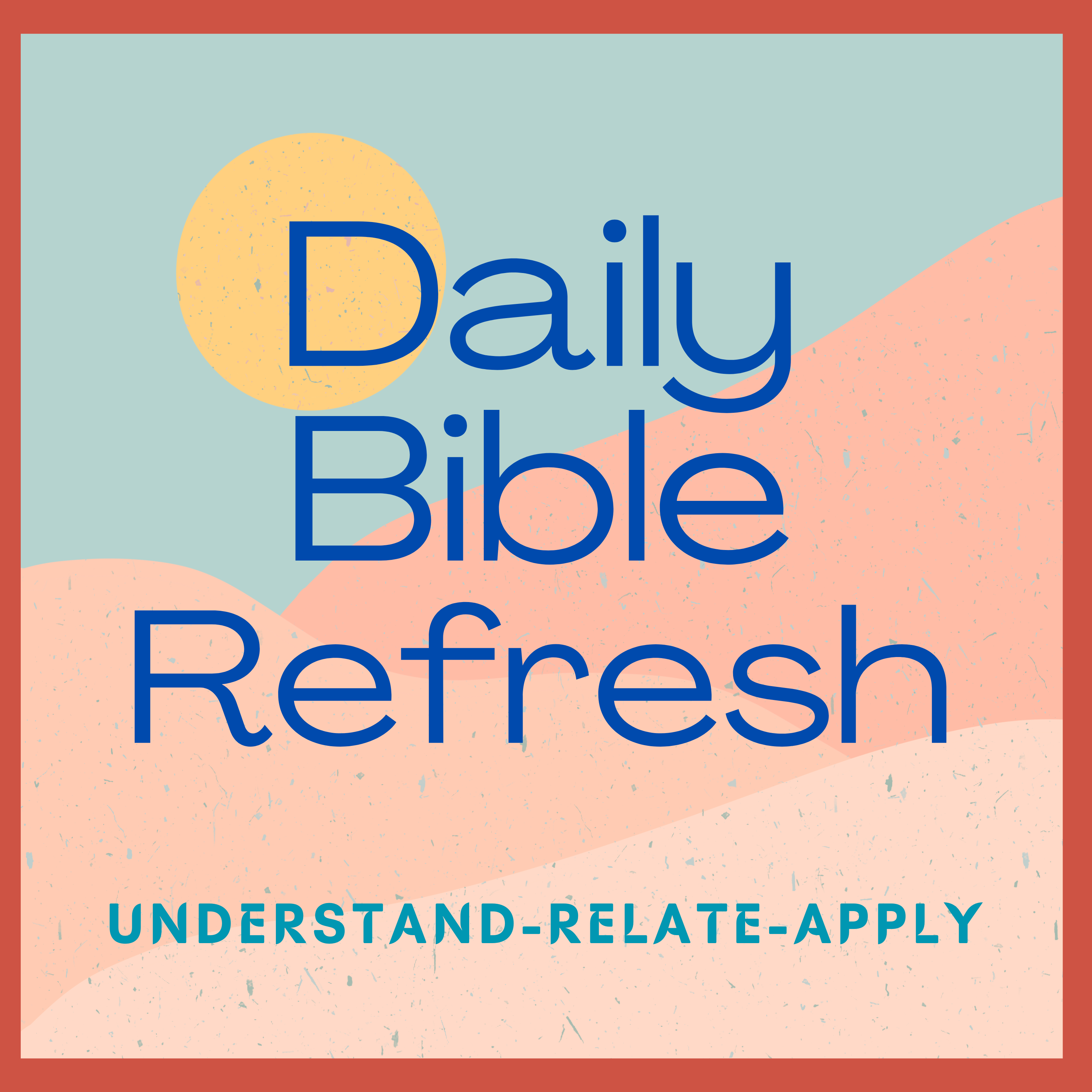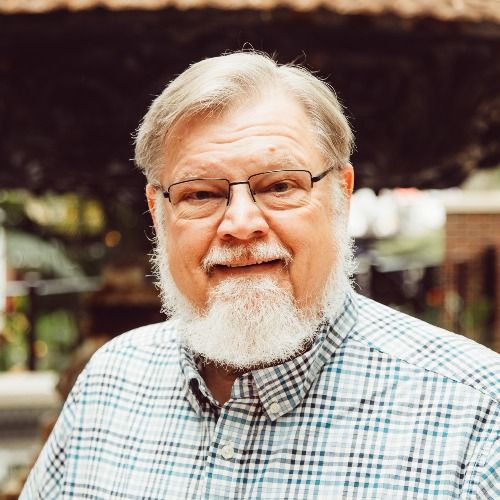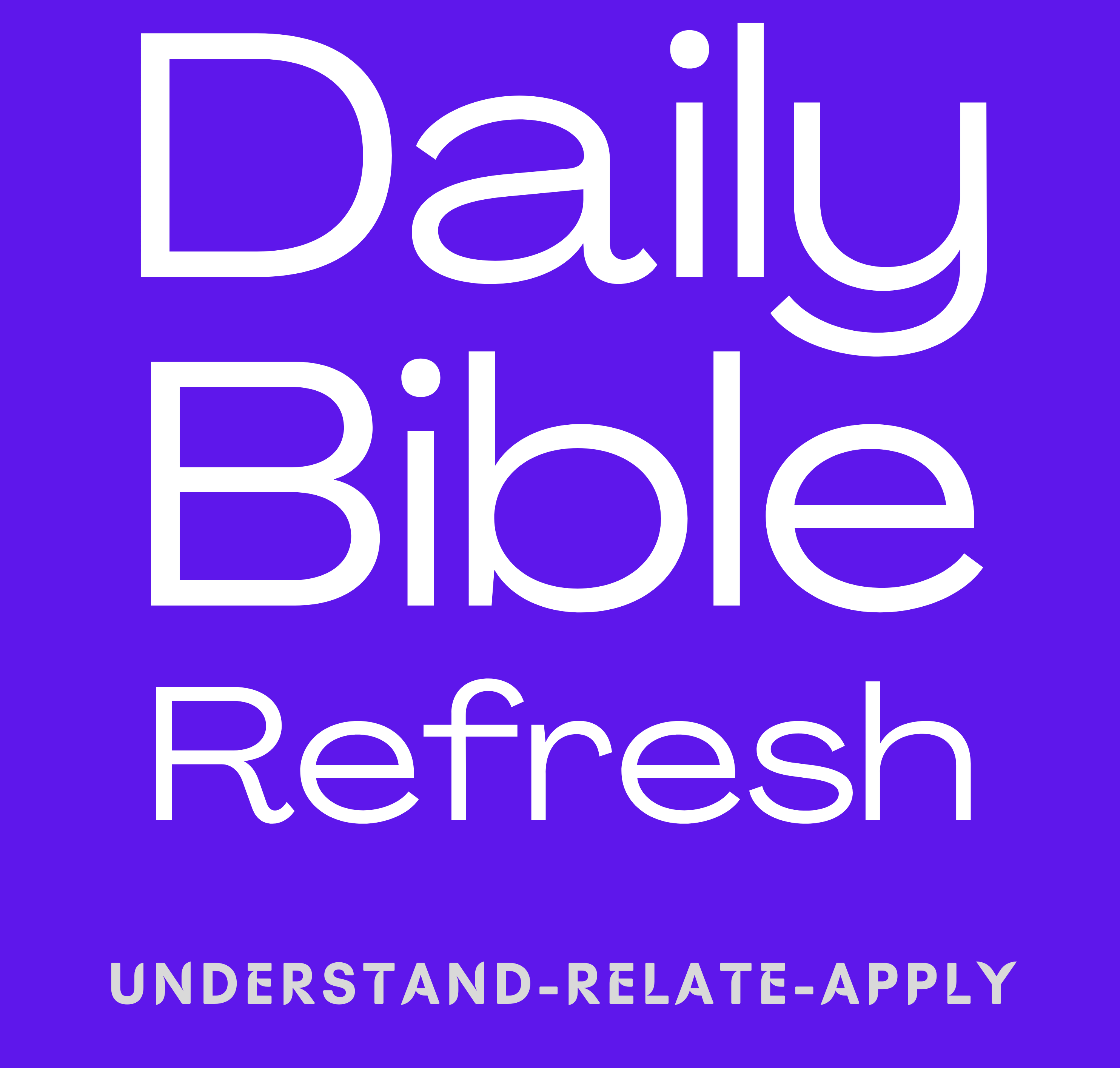Episode 944
Beyond Accumulation: Luke 12:13-21
You can help Dr. Brad attain his goal of getting a bit of the bible into two million ears by subscribing to "Daily Bible Refresh" on Apple Podcasts, leaving a five-star rating, and writing a review. More importantly please share with your network of family and friends about the "Daily Bible Refresh".
Please make listening to the "Daily Bible Refresh" a part of your daily life.
Remember… “All scripture is God-breathed and useful”(2 Timothy 3:16)
A profound exploration of wealth and its implications is undertaken in this episode, where the narrative draws heavily from the biblical parable presented in Luke 12:13-21. It begins with a poignant anecdote of a rich farmer whose abundant harvest leads him to contemplate the expansion of his barns, a decision that ultimately reflects a deep-seated greed and a disconnection from community. The speaker, Dr. Brad Miller, emphasizes the moral ramifications of such actions, positing that the hoarding of wealth not only detracts from individual fulfillment but also inflicts systemic violence upon society. Through the lens of contemporary capitalism, the discussion critiques the glorification of individual success that often overlooks the plight of the less fortunate. The rich farmer's fate serves as a stark reminder that life is not defined by material possessions, challenging listeners to reconsider their values in a consumer-driven world.
In addition to the moral examination, the episode delves into the concept of security, contrasting the farmer's misguided pursuit of financial stability with the idea of community resilience. Dr. Miller posits that true security lies not in accumulating wealth but in fostering relationships and supporting communal well-being. This perspective invites listeners to reflect on their personal relationships with excess and encourages actionable steps towards resource redistribution. The podcast ultimately urges us to engage in community-focused initiatives that prioritize collective thriving over mere individual gain, thereby enriching our discourse on economic justice and shared humanity.
Concluding with a reflective prayer, the episode encapsulates the essence of its message: the call for a paradigm shift in how we perceive wealth and success. It advocates for a life led by compassion and interconnectedness, urging us to recognize and act against the disparities that characterize our society. The episode serves not only as a biblical reading but as a clarion call for ethical living, resonating with anyone seeking to navigate the complexities of faith and modernity in a manner that uplifts the community as a whole.
Takeaways:
- The narrative from Luke emphasizes the moral implications of wealth accumulation and its societal impact.
- Wealth hoarding is depicted as a form of systemic violence against communities, perpetuating inequality.
- The farmer's solitary focus on personal success reveals a disconnection from collective well-being and community values.
- True security is suggested to be founded on community resilience rather than personal wealth accumulation.
- Engaging in resource redistribution is framed not simply as charity but as a pathway to communal thriving.
- The call to action encourages individuals to evaluate their personal excess and share resources with those in need.
Links referenced in this episode:
Companies mentioned in this episode:
- voiceofgoddaily.com
The central theme of today's discourse revolves around the profound implications of greed, as elucidated through the parable of the rich farmer from Luke 12:13-21. This narrative serves as a poignant critique of the tendency to equate life with material accumulation, emphasizing that one’s worth is not defined by possessions. We delve into the systemic violence inherent in wealth hoarding, highlighting its detrimental effects on communities and underscoring the moral imperative to address inequality. Furthermore, we explore the disconnection between individual success and collective well-being, challenging listeners to reconsider their personal definitions of security in a consumer-driven society. In conclusion, we advocate for a reallocation of resources that fosters community thriving over individual excess, encouraging actionable steps towards a more equitable future.
The "Daily Bible Refresh" is presented each day by Rev. Dr. Brad Miller who has a goal of speaking a bit of the bible into two million ears (one million people) in three years (2025-2028).
He is the author of "The A, B, C-1,2,3 Bible Study Guide" Free to you by clicking HERE.
Brad served as a local church pastor for forty years and has a background in radio and podcasting. Moreover, he is a life-long student of The Bible.
He believes in the words of Jesus that “scripture is fulfilled in your hearing” (Luke 4:21)
The "Daily Bible Refresh" is available seven days a week by 6:00 am ET. The episodes are no longer than ten minutes long and are...
- Understandable: A reading from the New Testament (usually the Gospel) selected from the Revised Common Lectionary using "The Message" translation.
- Relatable: You will have a couple of "points to ponder" from the text which will relate to your life
- Applicable: Every episode includes a way you can take action based on the reading
- A recommended resource to help you go deeper in biblical study and spiritual direction.
- A prayer for your day.
A companion resource to the Voice of God Daily Podcast is the “ABC Bible Study Guide” available by clicking HERE.
The "Daily Bible Refresh" is available every day at VoiceofGodDaily.com on Apple Podcasts, Spotify and all major podcast directories.
Transcript
My friend Dr. Brad Miller here with the Daily Bible Refresh.
Speaker B:This is your daily reading of the Bible from a progressive point of view.
Speaker B:In a bit I will read the New Testament lessons selected from the Revised Common Lectionary for this very day.
Speaker B:The reading is understandable.
Speaker B:I use the Message version relatable.
Speaker B:Please listen to the points to ponder and applicable with action steps you can take.
Speaker B:We pray and are done in less than 10 minutes.
Speaker B:It's all brought to you by voiceofgoddaily.com which is the home of your free personal Bible Study Guide, the ABC1, 23 Bible Study Method.
Speaker B: lionaires a million people by: Speaker B:You can help by saving and subscribing to the podcast and tagging your friends.
Speaker A: e's today's reading from Luke: Speaker A:Reading from the Message the Story of the Greedy Farmer Someone out in the crowd said, teacher, order my brother to give me a fair share of the family inheritance.
Speaker A:He replied, mister, what makes you think it's any of my business to be a judge or mediator for you speaking for the people?
Speaker A:He went on, take care.
Speaker A:Protect yourself against this least bit of greed.
Speaker A:Life is not defined by what you have, even when you have a lot.
Speaker A:Then he told them the story.
Speaker A:The farm of a certain rich man produced a terrific crop and he talked to himself, what can I do?
Speaker A:My barn isn't big enough for this harvest.
Speaker A:Then he said, here's what I'll do.
Speaker A:I'll tear down my barns and I'll build bigger ones.
Speaker A:Then I'll gather in all the grain and all the goods and I'll say to myself, self, you've done well, you've got it made and can now retire, take it easy and have the time of your life.
Speaker A:Just then God showed up and said, fool, tonight you die and and your barn full of goods.
Speaker A:Who gets it?
Speaker A:That's what happens when you fill your barns with self and not with God.
Speaker A:Really a challenging and a poignant story here from from Luke that really challenges all our notions about wealth and possessions and I think it's pretty relevant in our consumer driven world that when we're in right right now, let's talk about some points to ponder.
Speaker A:The violence of wealth hoarding the rich farmers behavior building bigger barns while others likely struggled reflects modern wealth concentration among a few billionaires building large fortunes doing global crisis while others suffer.
Speaker A:The farmer's actions represent systemic violence against our communities.
Speaker A:And Jesus harsh response suggests that hoarding resources is not just unwise but morally wrong.
Speaker A:Second point to ponder is about individual success versus collective well being.
Speaker A:Notice how the farmer talks only to himself.
Speaker A:Kind of weird really, revealing a profound disconnection from the community.
Speaker A:His speech I'll say to myself self mirrors contemporary narcissistic individualistic capitalism where personal success is celebrated even when it comes at this at the expense of others, at the expense of the community.
Speaker A:This challenges to examine how success might actually represent failure in terms of the human condition.
Speaker A:A third point to ponder is about redefining security.
Speaker A:See the farmer is seeking security in his accumulated wealth.
Speaker A:That's a familiar impulse in our retirement focused culture.
Speaker A:But Jesus suggests that true security lies in building community resilience rather than personal stockpiles.
Speaker A:This has implications about how we think about everything from personal finance to climate justice.
Speaker A:Here's our action step.
Speaker A:Consider how you your own consider your personal relationship with excess in your life and choose an area where you have more than you that you what you need.
Speaker A:It might be clothing or food or I don't know, living space, money, anything.
Speaker A:You know what it is.
Speaker B:There are some areas where you got.
Speaker A:More than enough and create a plan to share.
Speaker A:Some people call this resource re district redistribution.
Speaker A:This isn't about charity but it's about restructuring your life towards thriving of the community.
Speaker A:A collective thriving if you will.
Speaker A:And so maybe consider joining or be a part of some resource sharing entity or network, a housing coalition, food bank, clothing closet, something a community, land trust, number of things that you can do to get involved with how sharing becomes a part of caring.
Speaker A:We're going to come back and have a prayer here in just a minute, but I did want to share with you that we have a great resource for you to have that's going to help you with your at home Bible study.
Speaker A:It's called the ABC 1, 2, 3 Bible Study Method and I really want to encourage you to head on over to the voiceofgoddaily.com that is the place where you can pick up this free resource just for you.
Speaker A:The ABC 123 Bible Study Method.
Speaker A:Let's have our closing prayer.
Speaker A:Oh God of abundance and justice.
Speaker A:We live in a world that teaches us to grasp and hoard.
Speaker A:Help us to recognize when we're building bigger barns while others lack basic needs.
Speaker A:Give us courage to imagine different ways of living with resources, ways that prioritize community well being over personal excess.
Speaker A:When we're tempted by false security of accumulation remind us that true wealth lies in relationship and shared flourishing.
Speaker A:Guide us toward choices that help create a world where no one has too much while others have too little.
Speaker A:Amen.
Speaker B:My friend, I am delighted you chose to join me for today's reading.
Speaker B:The Daily Bible Refresh is completely listener supported.
Speaker B: on years, a million people by: Speaker B:I would be so grateful if you would go to voiceofgodddaily.com and share your gift of any amount.
Speaker B:Thanks much.
Speaker B:My name is Dr. Brad Miller and I'll be right here tomorrow with your Daily Bible Refresh.
Speaker B:Please subscribe and tag your friends until tomorrow.
Speaker B:Remember, God's loyal love doesn't run out.
Speaker B:His merciful love hasn't dried up, it's created new.
Speaker B:Every morning.



